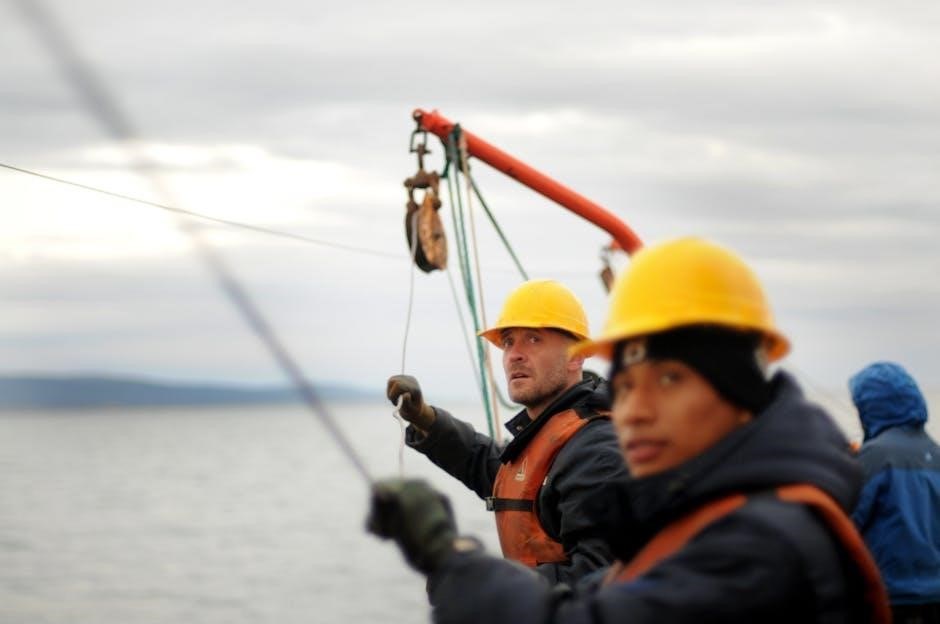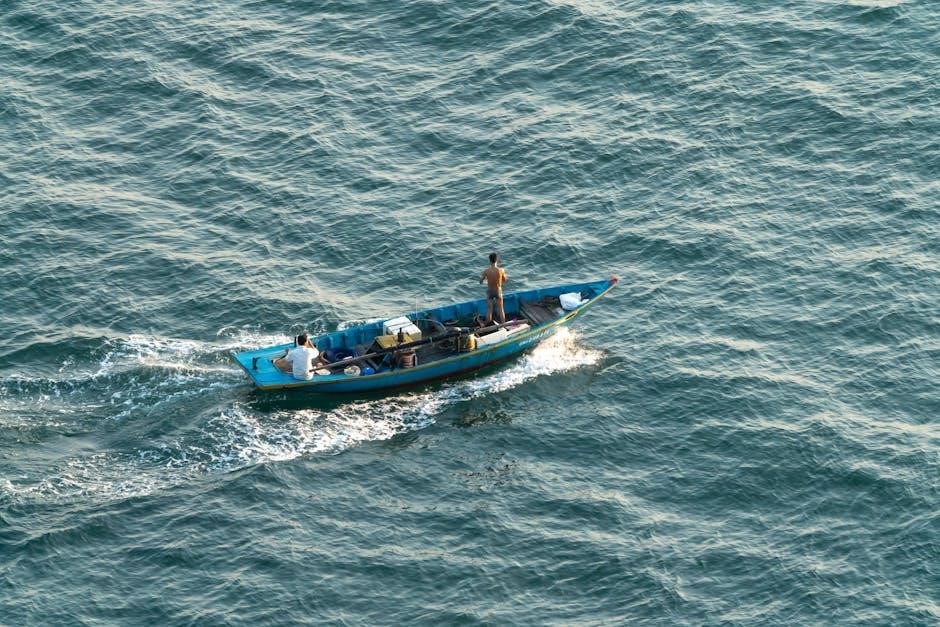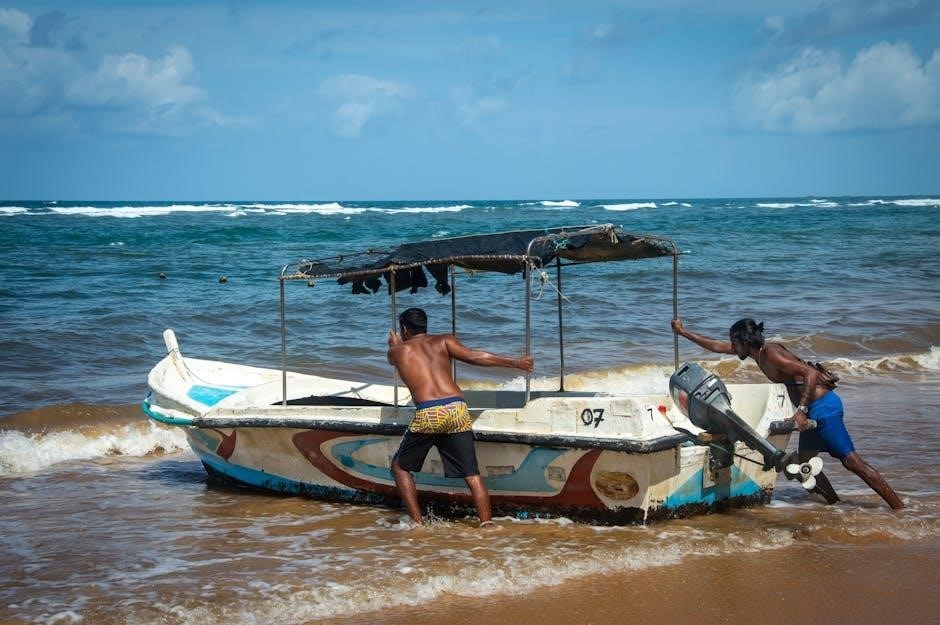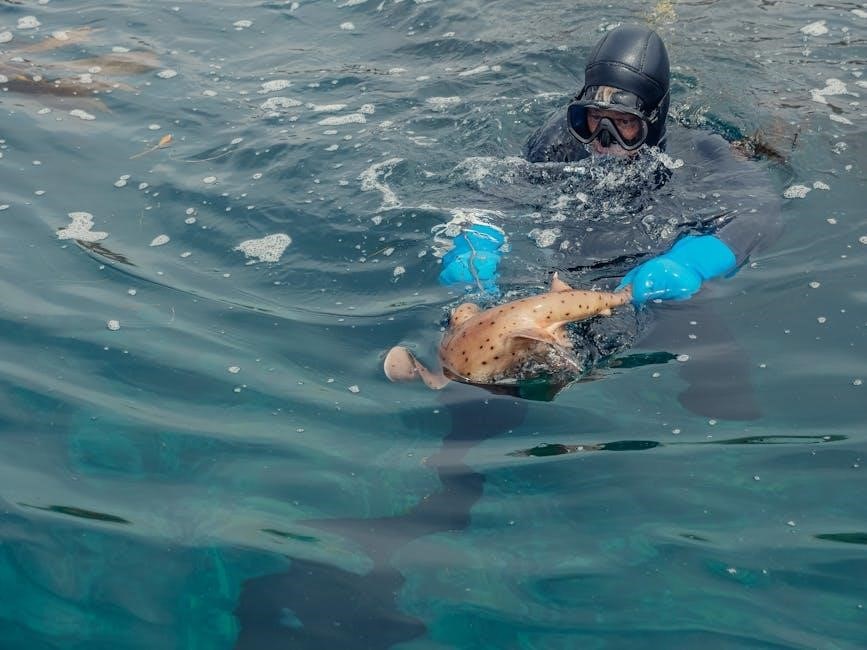
The Marine Corps Manual serves as the foundational guide for leadership, training, and operations, outlining core values and principles that define the Marine Corps’ identity and mission.
1.1 Overview of the Marine Corps Manual
The Marine Corps Manual is a comprehensive guidebook that outlines the principles, values, and procedures governing the Corps. It serves as a reference for leadership development, training methodologies, and operational standards. The manual emphasizes core values such as honor, courage, and commitment, while also detailing the Systems Approach to Training (SAT) and performance-based instruction. It ensures consistency across all units and maintains the traditions of the Marine Corps.
1.2 Historical Background and Evolution
Established in 1775, the Marine Corps Manual has evolved to reflect the Corps’ growth and adapting mission requirements. Originating from informal guidelines, it became a formal document in the 20th century, solidifying leadership principles and core values. The manual has been updated to address modern challenges, ensuring it remains relevant while preserving the Corps’ traditions and identity, rooted in honor, courage, and commitment.

Core Values and Leadership Principles
The Marine Corps Manual emphasizes core values of Honor, Courage, and Commitment, guiding Marines in ethical decision-making and leadership. These principles foster integrity, resilience, and accountability, ensuring Marines lead by example and uphold the Corps’ esteemed traditions and mission.
2.1 The Marine Corps’ Core Values: Honor, Courage, and Commitment
Honor, Courage, and Commitment are the bedrock of Marine Corps culture. Honor demands integrity and moral courage in all actions. Courage, both physical and moral, inspires Marines to overcome adversity. Commitment fosters unity and dedication to the Corps, fellow Marines, and the mission. These values guide Marines in their personal and professional conduct, ensuring they embody the Corps’ identity and uphold its legacy with pride and distinction at all times, fostering a culture of excellence and mutual respect. Additionally, these principles promote resilience, teamwork, and ethical decision-making, enabling Marines to serve with unwavering purpose and integrity, both on and off duty, reflecting the Corps’ high standards and traditions.
2.2 Leadership Development and Mentorship Programs
The Marine Corps emphasizes leadership development through structured programs and mentorship initiatives. These programs aim to cultivate leadership qualities, fostering growth and accountability. Mentorship plays a critical role, pairing experienced Marines with less experienced personnel to guide professional advancement. The Systems Approach to Training (SAT) Manual further supports this by aligning training with leadership development goals, ensuring Marines are prepared to lead effectively in diverse environments and challenges, while promoting a culture of continuous improvement and shared knowledge across all ranks, enhancing unit cohesion and operational readiness.

Training and Education in the Marine Corps
Marine Corps training emphasizes a systems approach, focusing on performance-based and criterion-referenced instruction to ensure Marines master essential skills and adapt to evolving challenges effectively.
3.1 The Systems Approach to Training (SAT) Manual
The Systems Approach to Training (SAT) Manual provides a structured framework for Marine Corps training, ensuring alignment with Department of Defense policies. It outlines a systematic process from needs assessment to evaluation, focusing on performance-based outcomes. This approach ensures that training is adaptive, effective, and tailored to meet the evolving needs of Marines, fostering competence and readiness across all levels.
3.2 Performance-Based and Criterion-Referenced Instruction
Performance-based and criterion-referenced instruction in the Marine Corps focuses on measurable outcomes, ensuring Marines meet specific standards. This approach emphasizes practical application of skills, allowing for tailored learning experiences. It aligns training objectives with real-world demands, ensuring Marines are prepared for operational challenges. This method enhances proficiency and readiness by providing clear, achievable benchmarks for success.

Mission Planning and Execution
Mission planning and execution involve aligning operations with strategic goals, identifying missions, assigning priorities, and managing risks to ensure successful outcomes in Marine Corps operations.
4.1 Identifying Missions and Assigning Priorities
Mission planning involves identifying objectives and assigning priorities to ensure alignment with strategic goals. Commanders assess operational requirements, resource allocation, and potential risks to prioritize tasks effectively. This process ensures that missions are executed efficiently, resources are optimized, and operational success is maximized. The Marine Corps Manual provides detailed guidance on this critical aspect of mission execution and planning.
4.2 Risk Management in Marine Corps Operations
Risk management is a critical component of Marine Corps operations, ensuring that potential hazards are identified, assessed, and mitigated. The process involves evaluating risks, developing countermeasures, and continuously monitoring outcomes. Effective risk management supports informed decision-making, enhances operational safety, and ensures mission success while aligning with the Marine Corps’ core values and strategic objectives.

Physical Fitness and Health Standards
The Marine Corps enforces rigorous physical fitness and health standards to ensure mission readiness. Regular evaluations and health programs promote discipline, resilience, and overall well-being among Marines.
5.1 Fitness Reporting and Evaluation
Fitness reporting and evaluation are critical components of Marine Corps standards, ensuring Marines maintain peak physical condition. The manual outlines specific metrics for assessment, such as strength, endurance, and agility, to gauge readiness. Regular evaluations help identify areas for improvement, fostering a culture of discipline and excellence. This systematic approach ensures all Marines meet rigorous health and fitness benchmarks, supporting mission effectiveness and overall well-being.
5.2 Promoting a Healthy, Drug-Free Lifestyle
The Marine Corps Manual emphasizes the importance of a healthy, drug-free lifestyle to maintain peak performance and readiness. Programs and policies are implemented to educate Marines on nutrition, stress management, and substance abuse prevention. Regular health screenings and support services are provided to foster a culture of wellness, ensuring Marines are physically and mentally prepared to meet mission demands effectively.

Legal and Administrative Guidelines
The Marine Corps Manual establishes legal and administrative policies, ensuring compliance with regulations and maintaining order. It outlines procedures for records management, correspondence, and legal protections for Marines.
6.1 Marine Corps Records Management and Correspondence
The Marine Corps Manual emphasizes proper records management and correspondence practices, ensuring accountability and transparency. It outlines policies for creating, maintaining, and disposing of records, while adhering to federal laws and regulations. Accurate documentation and secure storage are prioritized to uphold operational integrity and legal compliance, reflecting the Corps’ commitment to disciplined administrative standards.
6.2 Due Process and Legal Protections for Marines
The Marine Corps Manual ensures Marines’ rights are protected through strict adherence to due process and legal standards. It outlines procedures for fair treatment, legal counseling, and representation, ensuring justice and accountability. The manual aligns with federal and military laws, safeguarding Marines’ liberties and upholding the principles of equality and fairness within the Corps’ judicial and administrative processes.

Community Engagement and Social Responsibility
The Marine Corps Manual emphasizes community engagement and social responsibility, encouraging Marines to contribute positively through volunteerism, mentorship, and support for local initiatives, reflecting their commitment to societal well-being.
7.1 The Role of the Young Marines Program
The Young Marines Program is a youth education and service initiative targeting boys and girls aged 8–18. It focuses on fostering leadership, community service, and a healthy, drug-free lifestyle while honoring veterans. The program aims to instill discipline, respect, and patriotism, preparing young individuals to become responsible citizens and future leaders.
7.2 Social Media Principles for Marines
The Marine Corps Manual outlines social media principles to guide Marines in online engagement. These principles ensure that core values like honor, courage, and commitment are reflected in digital interactions. Marines are encouraged to maintain professionalism, respect privacy, and avoid inappropriate content. The handbook empowers Marines to responsibly represent the Corps while fostering positive and constructive online communities.

Continuous Improvement and Adaptation
The Marine Corps emphasizes lifelong learning and professional development to stay ahead of modern challenges. Continuous improvement ensures readiness and adaptability in evolving operational environments and threats.
8.1 Lifelong Learning and Professional Development
Lifelong learning is central to the Marine Corps’ commitment to professional development. Programs like MarinesNet and the Command and Staff College provide continuous education, fostering leadership and critical thinking. Mentorship initiatives ensure Marines grow personally and professionally, staying adaptable in a changing world. This dedication to learning ensures the Corps remains agile and effective in addressing modern challenges and threats.
8.2 Adapting to Modern Challenges and Threats
The Marine Corps emphasizes adapting to modern challenges through innovative training and operational strategies. The Systems Approach to Training (SAT) Manual ensures effective preparation for evolving threats. By integrating performance-based instruction and risk management, Marines develop the skills needed to address contemporary security issues. This adaptive approach ensures the Corps remains ready to meet future challenges with precision and resilience.

Marine Corps Culture and Traditions
Marine Corps culture emphasizes honor, tradition, and esprit de corps, fostering unit pride and camaraderie. Rituals like the Marine Corps birthday celebration and the Eagle, Globe, and Anchor emblem symbolize this rich heritage.
9.1 Honoring Veterans and Preserving Heritage
Honoring veterans is a cornerstone of Marine Corps culture, reflecting respect for their sacrifices and contributions. Programs like the Young Marines promote community service and remembrance.
Preserving heritage ensures the legacy of Marine Corps values endures, inspiring future generations to uphold the traditions of honor, courage, and commitment.
9.2 The Importance of Esprit de Corps
Esprit de Corps fosters unity and pride among Marines, strengthening teamwork and mission success. It is rooted in shared values, traditions, and experiences, enhancing camaraderie and mutual trust.
This spirit is cultivated through shared challenges, core values, and the pursuit of excellence, ensuring Marines stand together as a cohesive force, ready to overcome any obstacle.
The Marine Corps Manual serves as a foundation for success, emphasizing leadership and core values while adapting to meet future challenges and technological advancements effectively always.
10.1 The Marine Corps Manual as a Foundation for Success
The Marine Corps Manual is the cornerstone of success, providing clear guidance on leadership, operations, and core values. It outlines principles that ensure Marines uphold honor, courage, and commitment in every endeavor. By embedding these principles into daily decisions, the manual fosters unit cohesion and mission accomplishment, ensuring the Marine Corps remains a disciplined and effective force.
10.2 Evolving the Manual to Meet Future Needs
The Marine Corps Manual continuously evolves to address emerging challenges and integrate new technologies. This ensures that Marines remain equipped with relevant strategies and adaptable leadership frameworks. By incorporating feedback and modern training methods, the manual supports lifelong learning and professional growth. This evolution ensures the manual remains a vital resource, blending tradition with innovation to meet future demands effectively.
